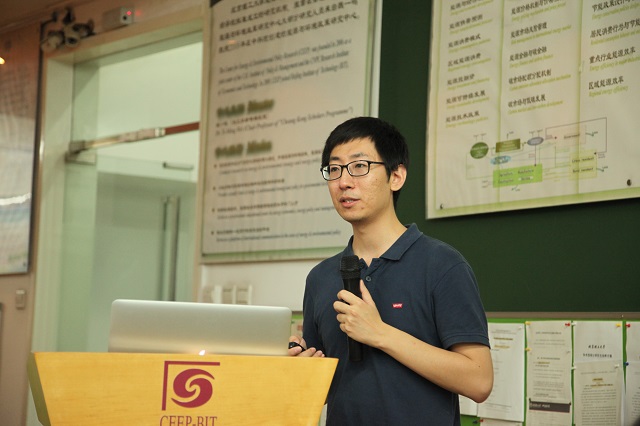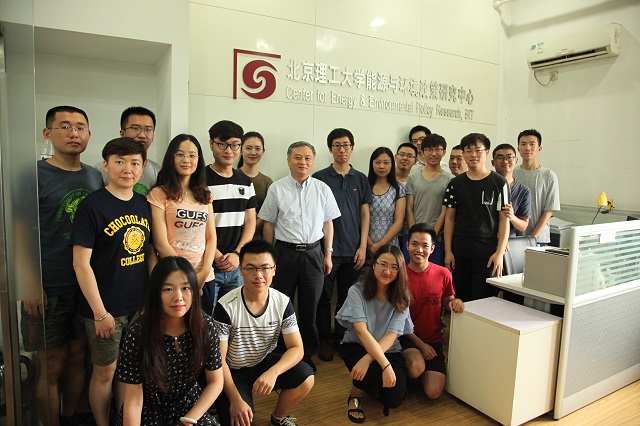

On July 18, 2017, associate professor Li-Jing Cheng from Institute of Atmospheric Physics, Chinese Academy of Sciences gave a report entitled “Global warming in the ocean” at CEEP, BIT. The report was hosted by Prof. Bao-Jun Tang, some other teachers and students attended the report.
Global atmosphere temperature is fluctuating as it can be affected by duplicate agents. The ocean stores 93% of global warming energy and were much stabilize comparing to atmosphere, so the change in ocean temperature is one of the most basic indicators of global climate change and the most critical part of global warming. In the lecture, Cheng briefly introduce the main observations of oceanic change and the challenges in building the key observations of global warming. Take the global warming of the ocean as an example: how fast is the rate of ocean warming over the past 70 years? With the ocean covering large scale of Earth’s surface but few observations were taken, the assessment of ocean heat from the scientific community varies widely. This also creates a mystery of the "disappearing energy" which has plagued climate scientists for years. Therefore, how to have an accurate estimates of global ocean energy change is a research hotspot in climate change research. Cheng’s team had developed a new method to estimate the ocean temperature which had many advantages comparing to the current method, and the estimation can give an explanation to the “disappearing energy” mystery.

Li-jing Cheng is an associate Researcher from Institute of Atmospheric Physics, Chinese Academy of Sciences. He had received a doctorate in atmospheric physics from the Chinese Academy of Sciences in 2014 and stayed as a researcher after graduation. He is engaged in climate change, ocean observation, ocean energy balance and energy cycle and other aspects of research and also a lead author for Marine and Cryosphere in Climate Change of Intergovernmental Panel on Climate Change (IPCC) Special Report, with more than 20 published papers in SCI academic papers, including the Science Journal "Science Advances", the American Meteorological Society Bulletin "BAMS" and so on.